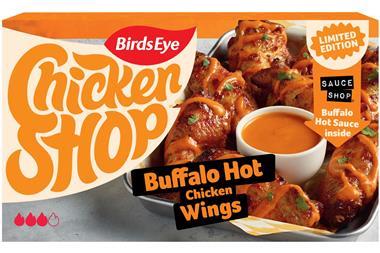
“We are not going away anytime soon, and we are building a growing movement of young people demanding better from you and your organisations.”
That was the closing message from Becky and Barakat, two young campaigners from Bite Back 2030, at The Grocer’s How to Win with Gen Z conference. The event highlighted the growing importance of Gen Z in the minds of the food industry, both as the generation setting cultural trends but also as future consumers and employees.
As highlighted in the 2022 Edelman gen Z report, this is the activist generation – activists not because they want to be, but because they feel they have to be. Let down by politicians and corporations, they have to come together to make the world a better place because they do not trust the people in power to protect the health of people and planet.
And it’s easy to see why. It should be easy to be healthy, but it isn’t. From a teenager’s perspective, our high streets, screens and supermarket shelves are flooded by unhealthy food. They are disproportionately targeted with marketing and promotions for food they do not need and that is not good for them.
Boardrooms are well aware of this. The corporate response is often to up the talk about purpose, authenticity and trust – values that matter to gen Z when considering what to buy and where to work. And with good reason. They sound great, and we hear it increasingly from the top of companies through CEO interviews, corporate presentations and shareholder ESG statements.
But delivering purpose authentically is much harder. There is a mismatch between what companies say they value and what they do. Young people increasingly see through this, and they will take action: 59% of gen Z will stop buying a brand if they don’t trust the company [Edelman].
Take Nestlé. The statement on its corporate website is: “We’re working to make our portfolio even healthier and tastier, inspire consumers to lead healthier lives, and develop and share our understanding of the connection between nutrition and health.”
Yet last week, it released a new Kit Kat cereal that contains a third of a teenager’s daily free sugar limit in each bowl. The press release says the new product “has been developed to cater to consumers who are looking for an occasional, indulgent breakfast option that can be enjoyed as part of a balanced diet”.
Not everyone sees a problem with how the industry works. Mars CEO Poul Weihrauch said in the Financial Times attacks on companies’ social goals was a “nonsense conversation”. He believes companies are deeply invested in these goals, and that profit and purpose are not enemies.
But it’s hard to swallow this argument when young consumers are targeted by promotions for unhealthy foods on bus tickets, through advertising on their phones, and misleading health claims on high sugar or salt products when shopping.
Closing the gap between intention and action will require leadership. Ultimately, this is what gen Z is looking for – leaders who take responsibility for their role in the food system. That means setting meaningful targets for healthier sales, shifting portfolios to healthier options and stopping the misleading health claims and bombardment of unhealthy food advertising that surrounds gen Z.
At Bite Back 2030, young people are trying to challenge and inspire leadership across the food industry. A growing number of companies are setting targets and trying to walk the walk on health, but efforts are undermined by other companies who resist and hold back progress.
If the food industry is serious about winning with gen Z, businesses must earn trust by matching their actions and words. That will take leadership. And the companies that lead authentically and with purpose will thrive in the future.
As Becky and Barakat said: “You have the power to change things, and redesign a food system that is for child health, not against it.”



















No comments yet